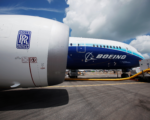After seven weeks of halted production, Boeing’s West Coast factory workers voted to accept a new contract, bringing an end to a prolonged strike that impacted the company’s output and finances. In a 59% majority vote, members of Boeing’s largest union, the International Association of Machinists and Aerospace Workers (IAM), agreed to a contract that includes a 38% pay raise over four years. The approval comes after two previously rejected offers, and the new contract eases pressure on Boeing’s CEO Kelly Ortberg, who assumed the role amid the company’s financial struggles.
The strike, the first in 16 years for Boeing’s factory workers, was motivated by demands for fairer wages and a return to defined-benefit pensions, which were replaced a decade ago by 401(k) retirement plans. While the new contract doesn’t restore the old pension, it does increase company contributions to 401(k) plans, addressing a longstanding concern among employees. For some workers, the 38% pay raise, which includes an annual 4% bonus, achieved their goal of a 40% increase. “We got there,” remarked David Lemon, a Boeing worker in Seattle.
Ortberg acknowledged the challenges of the past few months and emphasized a renewed commitment to teamwork in a message to employees, highlighting the shared effort needed to reestablish Boeing’s reputation for excellence.
The labor dispute, which began on September 13, affected approximately 33,000 machinists who build popular models like the 737 MAX, 767, and 777 jets. During the strike, Boeing’s losses were estimated at $100 million per day in revenue, prompting the company to raise $24 billion from investors last week to protect its credit rating.
Production is expected to resume gradually, with 737 MAX output likely to remain below pre-strike targets for some time. Boeing anticipates that it will take weeks to fully ramp up production, as some employees may require retraining after the extended time away from the factory floor.
President Joe Biden and Acting Labor Secretary Julie Su, who helped facilitate the contract negotiations, commended both sides on the agreement. “We’ve shown that collective bargaining works,” Biden said, underscoring his administration’s support for unions.
Despite the agreement, some union members expressed dissatisfaction. Thomas Amilowski, who works on Boeing’s 777 line, voted against the contract, criticizing union leaders for what he saw as a “defeatist mindset.” Jon Holden, IAM’s lead negotiator, acknowledged that 59% approval meant that “there were those who definitely were not happy with the vote,” but expressed optimism about rebuilding trust with Boeing’s leadership.
With the new contract in place, Boeing’s average machinists’ salary is expected to rise from $75,608 to $119,309 over four years, adding an estimated $1.1 billion to Boeing’s wage expenses. Additionally, the contract includes a $12,000 ratification bonus for each union member, contributing another $396 million in costs.
Union turnout was significant, with over 26,000 members voting, representing about 80% of the workforce. As workers prepare to return to production, Boeing and its employees face the challenge of rebuilding their relationship after a tense period of negotiations.


















